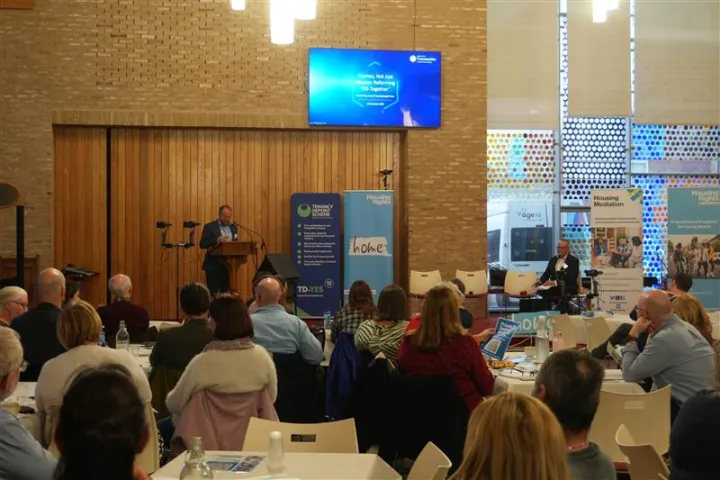Domestic Abuse and Homelessness Awareness Week
As we enter Domestic Abuse Awareness week, at Housing Rights we are deeply saddened by the levels of domestic abuse that continue to exist in Northern Ireland. Last year 29,751 domestic abuse incidents were recorded1 and police were called to a domestic abuse incident every 18 minutes.2 So many more go unreported.
A housing system that is failing victims
We are also frustrated by the systemic failures that leave so many victims of domestic abuse homeless. By the fact that so often victims are forced to leave their homes while the perpetrator stays. The lack of accessibility and enforcement of court orders, which too often fail to do their job of keeping victims safe. The insufficient prioritisation given to victims of domestic abuse on the social housing waiting list. The underlying chronic lack of supply of social housing that fuels the fire of homelessness.
Experts by experience creating change and inspiring hope
Alongside this sadness and frustration, we are also profoundly grateful to the phenomenal groups of women with experience of domestic abuse and homelessness who have transformed our training, services and policy work in this area over the past couple of years. Their strength, courage, insights and expertise have not only shaped our work, but have also given us hope. A continuous reminder that change is possible, that as a society and as a sector we can, and must, do better.
Immersive training for frontline staff
Back in 2023 we worked with a group of women through North Down and Ards (NDA) Women’s Aid. They shared their experiences about the challenges they faced getting help with their housing when fleeing domestic abuse, as well as insights and ideas about what needs to change. This led us to develop an immersive training course to build empathy and awareness among frontline staff working in housing and homelessness. At the heart of the course is a Virtual Reality film based on the women’s first-hand experiences of presenting as homeless when fleeing domestic abuse.
In partnership with NDA Women’s Aid we have delivered the training to over 150 staff working in the Northern Ireland Housing Executive (NIHE), Housing Associations and charities across NI. We have recently secured funding from NIHE to deliver the training to a further 90 NIHE frontline staff in the next six months.
Legislative Theatre driving policy change
Earlier this year we ran our first Legislative Theatre project, in partnership with Arts and Homelessness International and North Down & Ards Women’s Aid. The project brought together 11 women who have first-hand experience of domestic abuse and homelessness. Over the course of four workshops, they co-created a play based on their collective first-hand experiences which they then performed to a theatre packed full of key stakeholders and policy makers.
The actors and audience members collaborated with a panel of policymakers to co-create 3 key policy proposals addressing the key issues raised in the play. The event concluded with each of the members of the policymaker panel committing to actions to work towards the proposals, which they reported back on eight weeks later.
A bespoke housing advice and advocacy service for those experiencing domestic abuse
Building on our existing advice work, and with input from our experts by experience, we have developed a bespoke pilot project to support people affected by domestic abuse and homelessness. We have secured funding from the NIHE’s Homelessness Prevention Fund for the first six months of the project to deliver housing clinics across NI, as well as providing advocacy and representation. We will be working in partnership with local Women's Aid and NIHE offices to develop this work, with a particular focus on areas outside of Belfast. We are excited to use the learning from the first phase of the project to develop this work in future years.
So much more to be done
Last year 1202 households presented as homeless to the NIHE due to domestic abuse.3 In reality, the numbers affected are even higher. We know that due to stigma and fear, many people presenting as homeless do not disclose domestic abuse, while many more are not able to reach out for help at all.
There remains a huge amount of work to be done to prevent homelessness for people experiencing domestic abuse. This week, our sadness and frustration continue to drive us to push for the change that we know is needed. While our gratitude to the experts by experience who have poured so much into our work, fills us with much-needed hope that change is possible.
If you are affected by domestic abuse and need help with your housing speak to an adviser.
For more information on support for people experiencing domestic abuse click here.

